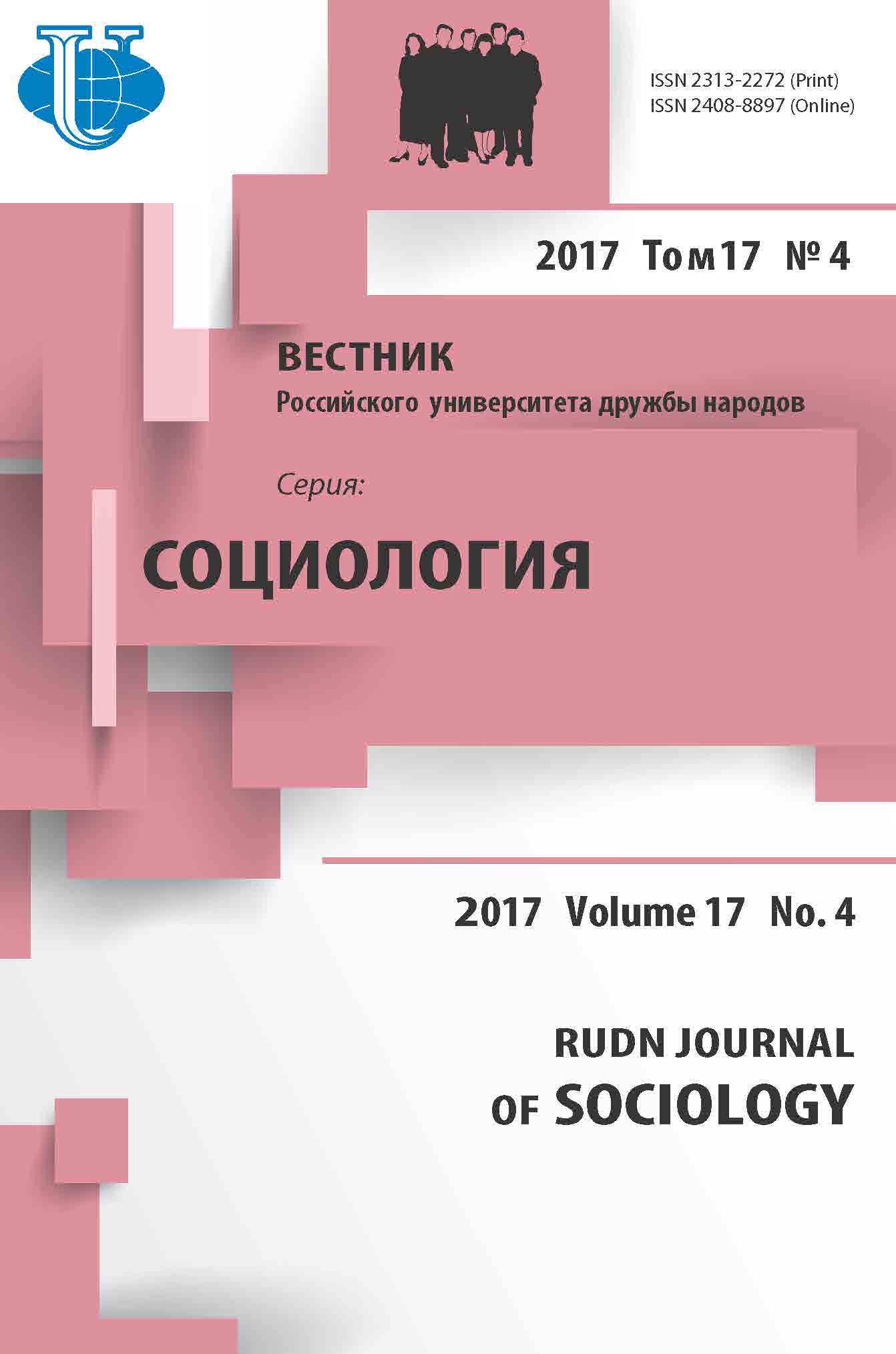UNLEARNED LESSONS OF CONTEMPORARY HISTORY
- Authors: Danilov AN1
-
Affiliations:
- Belarusian State University
- Issue: Vol 17, No 4 (2017)
- Pages: 460-467
- Section: Theory, Methodology and History of Sociological Research
- URL: https://journals.rudn.ru/sociology/article/view/17288
- DOI: https://doi.org/10.22363/2313-2272-2017-17-4-460-467
- ID: 17288
Cite item
Full Text
Abstract
The article considers the complex geopolitical situation in the global world at the end of the second decade of the 21st century as determined by the consequences of the collapse of the Soviet Union and by the new world order. The author seeks to answer the questions who will define the current geopolitical situation, whose aims it will reflect, what will become the basis of new geopolitical realities, the basis of moral solidarity of humankind, and the spiritual basis of future civilizations. The new challenges give rise to a desperate struggle for different scenarios for building a happy life. Moreover, it is not clear which ideal of the future world will be widely supported as a development guideline. The recognition as such of the standard of living and development of the strongest ones becomes a real threat to the new civilization for it leads to the loss of national interests of sovereign states, and to the loss of an independent future. Today, there is an active search for new theories and concepts that will adequately explain con-temporary global processes. In this thematic context, the author identifies main lessons not learned by the world political elites. The first lesson: new states are not born in an empty place, their common history is a great advantage ensuring prospects for the further development of interstate cooperation. The second lesson: the widespread falsification of history has a negative impact on national, cultural and social-group identity in transforming societies. The third lesson: after the collapse of the Soviet Union, the post-war balance of power was destroyed together with the system of checks and balances in world politics (a bipolar model of the world). The fourth lesson: under radical social transformations, the moral system of the population devaluates with numerous crisis consequences.
About the authors
A N Danilov
Belarusian State University
Author for correspondence.
Email: a.danilov@tut.by
Kalvarijskaja St., 9, Minsk, 220004, Republic of Belarus
References
- Gorshkov M.K. Rossijskoe obshhestvo kak ono est (opyt sociologicheskoj diagnostiki) [Russian Society as It is: A Sociological Diagnosis]. Vol. 2. No. 1. Moscow: Novyj hronograf; 2016 (In Russ.).
- Leonov L.M. Iz dnevnikov [From the Diaries]. Sobr. soch. In 6 vols. Vol. 4. Moscow: Terra; 2013 (In Russ.).
- Stjopin V.S. XXI vek — radikalnaja transformacija tipa civilizacionnogo razvitija [21st century — a radical transformation of the type of civilizational development]. Doklad na XVII Likhachjovskih chtenijah. http://www.lihachev.ru/pic/site/files/lihcht/2017/dokladi/StepinVS_ plen_rus_izd.pdf (In Russ.).
- Titarenko L.G. Sovremennaja zapadnaja sociologija: rekonstrukcija paradigm [Contemporary Western Sociology: A Reconstruction of Paradigms]. Minsk: BGU; 2015 (In Russ.).
- Toshchenko Zh.T. Sociologija zhizni [Sociology of Life]. Moscow: Unity-Dana; 2016 (In Russ.).
- Yadov V.A. Sovremennaja teoreticheskaja sociologija kak konceptualnaja baza issledovanija rossijskih transformacij [Contemporary Theoretical Sociology as a Conceptual Basis for the Study of Russian Transformations]. Saint Petersburg: Intersocis; 2006 (In Russ.).
Supplementary files













